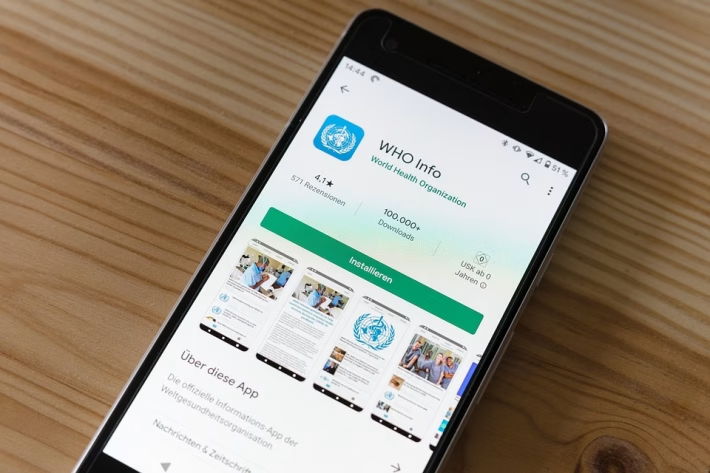The Rise of User-Centric Design: Most Downloaded Apps of 2025 Unveiled

Introduction
In a world increasingly dominated by remote work and digital collaboration, the software landscape continues to evolve at lightning speed. As of 2025, Notion 3.0 has taken center stage as one of the hottest trending software products this year. This powerful tool is gaining traction not solely for its aesthetic appeal but for its transformative capability to streamline complex workflows, significantly enhancing productivity for teams and individuals alike.
The question remains: what makes Notion 3.0 a must-have software in 2025? The answer lies in its comprehensive features that organize, manage, and cultivate collaboration with ease, solving the prevalent issue of information chaos that many users face today.
Key Highlights
So, what sets Notion 3.0 apart from its predecessors and competitors? There are several key updates driving its popularity:
-
AI-Powered Automation: Notion has integrated cutting-edge AI capabilities that automate mundane tasks, from setting reminders to drafting content. This feature empowers users to spend more time focusing on higher-level tasks instead of administrative duties.
-
Enhanced Collaboration Tools: The introduction of real-time co-editing features and smart commenting has transformed team collaboration. Users can now collaborate seamlessly, making discussions and project updates accessible in a visually engaging way.
-
Customizable Templates: Version 3.0 offers an extensive library of customizable templates designed for various industries, from project management to event planning. This flexibility makes it easier than ever to set up workflows tailored to specific needs.
- Advanced Database Functions: Notion’s database functions have taken a quantum leap, allowing users to create complex relations among data points and visualize data dynamically. This is particularly appealing for analytical users who thrive on managing intricate sets of information.
User Impact
Notion 3.0 is designed to cater to a broad spectrum of users:
-
Businesses: Large teams can streamline their operations, manage projects efficiently, and enhance communication. The automation features significantly reduce bottlenecks in workflow, fostering agile environments.
-
Freelancers: For independent professionals, Notion acts as an all-in-one workspace. They can manage clients, invoices, and projects within a single ecosystem, sparing them the hassle of juggling multiple tools.
-
Developers: Those in tech can benefit from the robust database functions, allowing for meticulous documentation and project tracking without the need for additional tools.
- General Users: Even casual users find Notion’s customizable nature appealing, as they can design personal to-do lists, journaling spaces, and more without sacrificing functionality.
Market Context
In an industry saturated with productivity software, Notion 3.0 stands tall by addressing the fragmentation of tools that often leads to inefficiency. As businesses navigate the complexities of hybrid work environments, the demand for versatile, user-friendly solutions has surged. According to a recent survey by TechNext, over 70% of organizations cite tool overload as a leading cause of productivity loss, marking Notion’s timing as impeccable.
Moreover, with competitors like Trello, Asana, and Monday.com battling for market share, Notion’s unique blend of workspace and database functions positions it as a formidable contender in the productivity landscape of 2025.
Expert Opinions
Industry experts have been quick to applaud Notion 3.0 for its innovative features. Michael Chen, a technology analyst at Gartner, stated, "Notion has effectively created an ecosystem that keeps projects and teams organized, allowing businesses to adapt quicker than ever."
Further, user reviews from platforms like G2 and Capterra have reported high satisfaction rates, with users praising Notion’s intuitive interface and flexibility. Trustpilot data reflects a 4.8/5 rating, with thousands of reviews highlighting its ease of use and capacity to replace multiple other tools effectively.
Comparison
When stacked against competitors, Notion 3.0 shines in its multifaceted approach.
- Trello is excellent for basic task management but lacks the advanced database capabilities and collaboration features that Notion offers.
- Asana excels in project structure but doesn’t allow for the same level of customization in terms of workspace aesthetics and functionality.
- Monday.com offers powerful automation but can be overwhelming for new users looking for simplicity.
Overall, while other tools have their strengths, Notion’s all-in-one capabilities make it a more versatile solution for a wide array of tasks.
Future Outlook
Looking ahead, the trajectory for Notion appears promising. The rise of remote work and the ongoing evolution of workplace dynamics are likely to sustain interest in productivity tools that are adaptable and user-friendly. As Notion continues to innovate—rumored features for 2026 include blockchain integration for data security—the software is poised to remain a staple in digital workplaces.
Moreover, as businesses increasingly recognize the importance of mental well-being and work-life balance, tools that promote efficient workflows will capture further market attention, ensuring Notion remains relevant in the fast-paced software scene.
Conclusion
To summarize, Notion 3.0 stands as a standout tool for 2025, driving productivity, enhancing collaboration, and offering a singular solution to the chaos that often plagues modern workflows. Whether you’re a business, freelancer, developer, or casual user, integrating Notion into your toolkit is a step toward improved organization and efficiency.
The user-driven updates and AI-powered features not only reflect a strong understanding of user needs but also set a new standard against which other productivity tools will be measured.
FAQ
1. What is Notion 3.0?
Notion 3.0 is the latest version of the productivity and organization tool, featuring AI-powered automation, enhanced collaboration tools, and advanced database functions.
2. Who should use Notion?
Notion is ideal for businesses, freelancers, developers, and general users looking for an all-in-one solution for project management, documentation, and collaboration.
3. How does Notion compare to other productivity tools?
While tools like Trello and Asana focus on specific functionalities, Notion offers a multifaceted approach that combines workspace, database, and collaboration features, making it more versatile.
4. Will Notion remain popular in the future?
Given the ongoing demand for efficient productivity tools and Notion’s commitment to innovation, it is likely to remain a relevant and essential tool in the software industry for years to come.
🚀 Try Ancoia for FREE today and experience the power of business automation!
🔗 Sign up now and get a 7-day free trial



